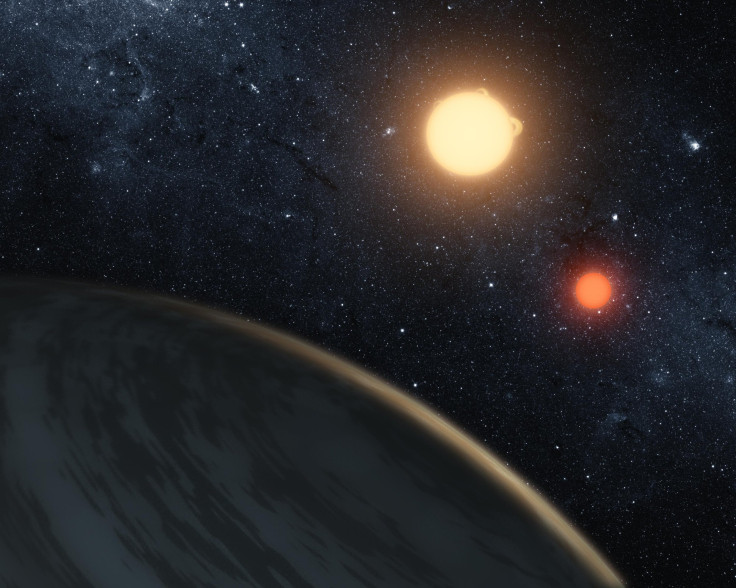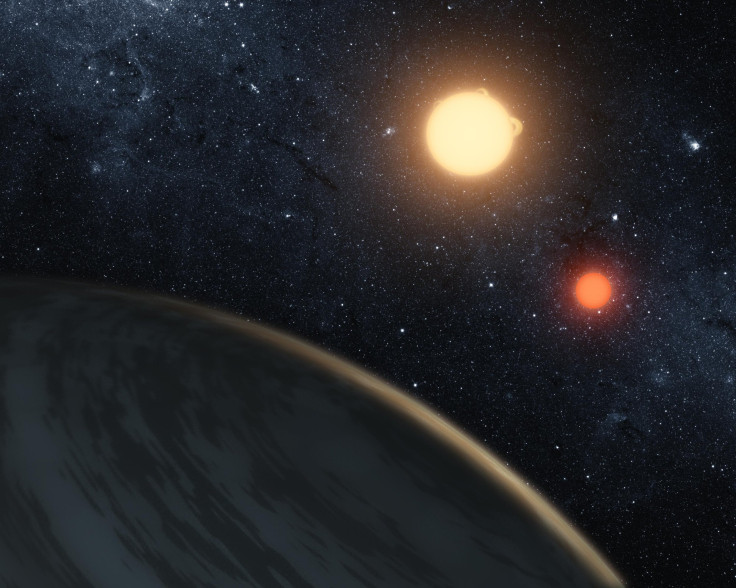Star Wars Planet Like Luke Skywalker’s Home? Astronomers Discover Evidence Of Possible Tatooine In Deep Space

George Lucas may not have been far off in his depiction of Luke Skywalker’s home, according to scientists. Researchers at University College London found evidence of planetary debris orbiting a double sun in deep space, making a real-life Star Wars’ Tatooine entirely possible.
Researchers found the remains of an asteroid orbiting a white dwarf and a brown dwarf in a system called SDSS 1557 some 100 million light years away, according to a study published Monday in the journal Nature Astronomy.
The asteroid debris told scientists that other rocky, terrestrial planets, much like Tatooine, could exist nearby. The evidence was groundbreaking because previously all other celestial bodies orbiting two suns were found to be gassy planets like Jupiter. In comparison to those planets, which are typically made of carbon-laden, icy material, the planetary debris discovered in the UCL study had a high content of metals like silicon and magnesium.
“Building rocky planets around two suns is a challenge because the gravity of both stars can push and pull tremendously, preventing bits of rock and dust from sticking together and growing into full-fledged planets,” UCL’s Jay Farihi, the lead author of the study, said in a press release. “With the discovery of asteroid debris in the SDSS 1557 system, we can see clear signatures of rocky planet assembly via large asteroids that formed, helping us understand how rocky exoplanets are made in double star systems.”

The debris was discovered using data from the Gemini Observatory, a set of two telescopes located in Hawaii and Chile.
Earth-sized planets orbiting a binary system, or double sun, could be common, according to a study published in Nature Astronomy in 2015 which predicted that more were likely to be discovered in the coming years. The UCL study, however, was the first to find even scant evidence of a rocky, terrestrial planet in such a system.
© Copyright IBTimes 2024. All rights reserved.





















